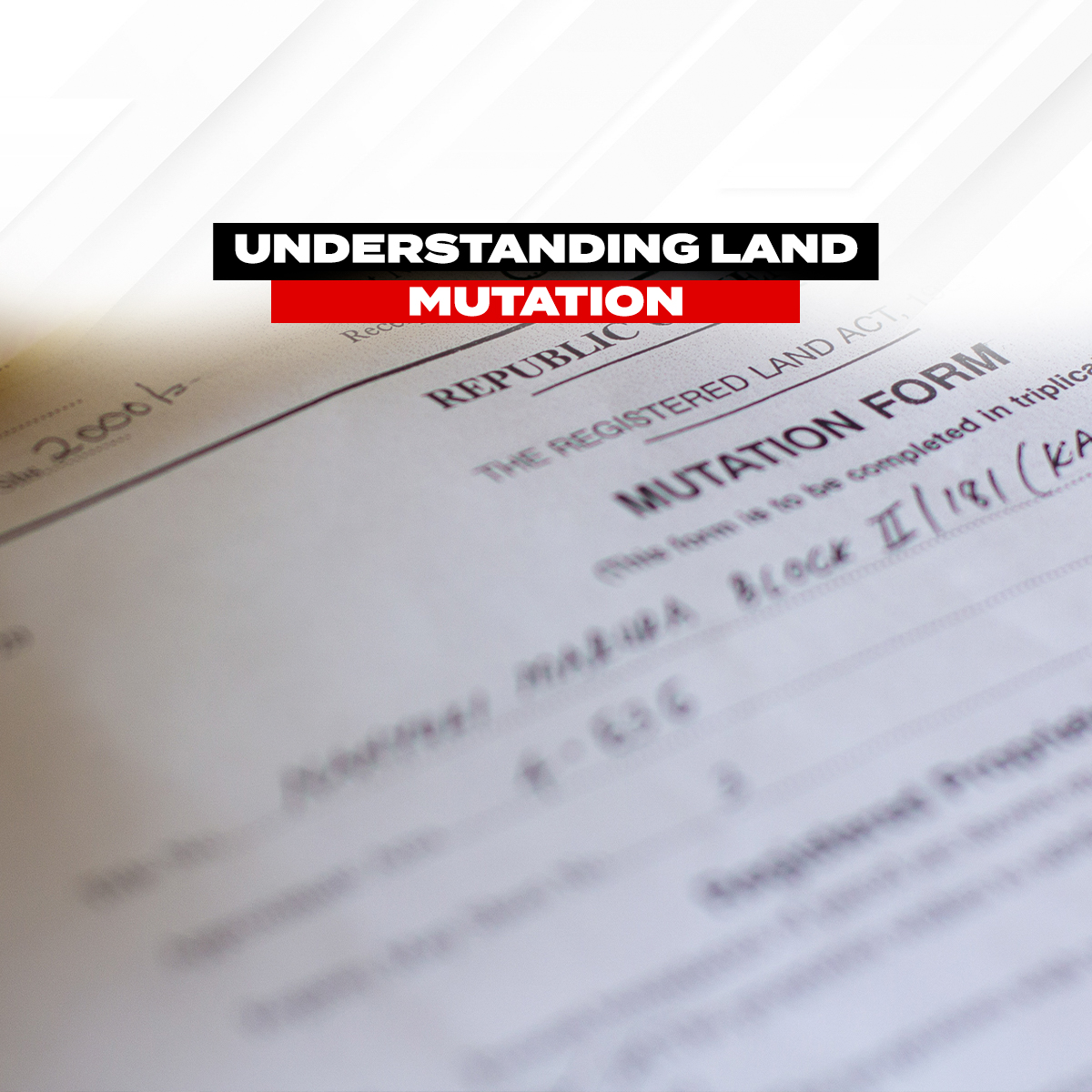A land mutation is a common term often discussed in land investment circles. This simple process involves changing the ownership of a title deed from one individual to another. Let’s explore the importance of land mutation, the main types, and the process of applying for one in Kenya.
Importance of Mutation:
1. Facilitating Property Taxation: The government uses mutation records to levy property taxes accurately, ensuring that landowners meet their tax obligations promptly.
2. Rectifying Land Records: It assists in correcting errors or discrepancies in land records, providing an updated and accurate ownership status.
3. Proof of Land Ownership: Similar to a title deed, a mutation certificate acts as tangible proof of land ownership, which is essential when dealing with any property-related matters.
4. Valid Land Transfer: The mutation certificate serves as genuine evidence of a successful land transfer from one person to another, ensuring a smooth and legally recognized ownership transition.
Two Types of Property Mutation:
1. Mutation for Agricultural Land: This type of mutation applies to land primarily used for farming and agricultural purposes.
2. Mutation for Non-Agricultural Land: This category covers land utilized for residential purposes such as flats, independent houses, residential plots, commercial plots, and other non-agricultural activities.
When to Get a Mutation:
1. When Purchasing a Property: As part of the land purchase process, acquiring a mutation is essential, as you cannot transfer property ownership without a mutation form.
2. During Inheritance: In the case of inheriting a property from a deceased owner, the process is required to transfer the property to the rightful heirs.
3. Gift Deed: If you intend to gift your land property to someone, a gift deed, along with the process, is legally necessary.
Land Mutation Acquisition Process:
The process involves several straightforward steps:
1. Submission of the Application: Landowners must fill out the mutation form at the local revenue office, providing their details, address, date, and the type of land transfer they wish to execute.
2. Payment: The cost varies across different local governments, and applicants must pay the required fee based on their area.
3. Attach Key Documents: Important documents, such as a tax receipt, copy of the title deed, indemnity bond, affidavit, and death certificate (in case of inheritance), must be submitted during the mutation process.
4. Processing of the Request: Officers at the revenue office will review the submitted documents and verify the property details. Once everything is in order, they will issue the mutation certificate.
Difference between Land Mutation and Registration:
Land registration is the legal transfer of a title deed from the seller to the buyer during a land sale. On the other hand, land mutation occurs after the entire registration process and involves changing the ownership of the title deed.
Cancellation of Mutation:
In some instances, there may be a need to cancel a land mutation. The process is straightforward, involving filling out a form for the cancellation.
For more valuable insights and expert advice on the Kenyan real estate market, we encourage you to explore other blogs by Zenawi Real Estate. Happy land investing! Also, call 0758 000 111 to book a FREE SITE VISIT to view our plots.
